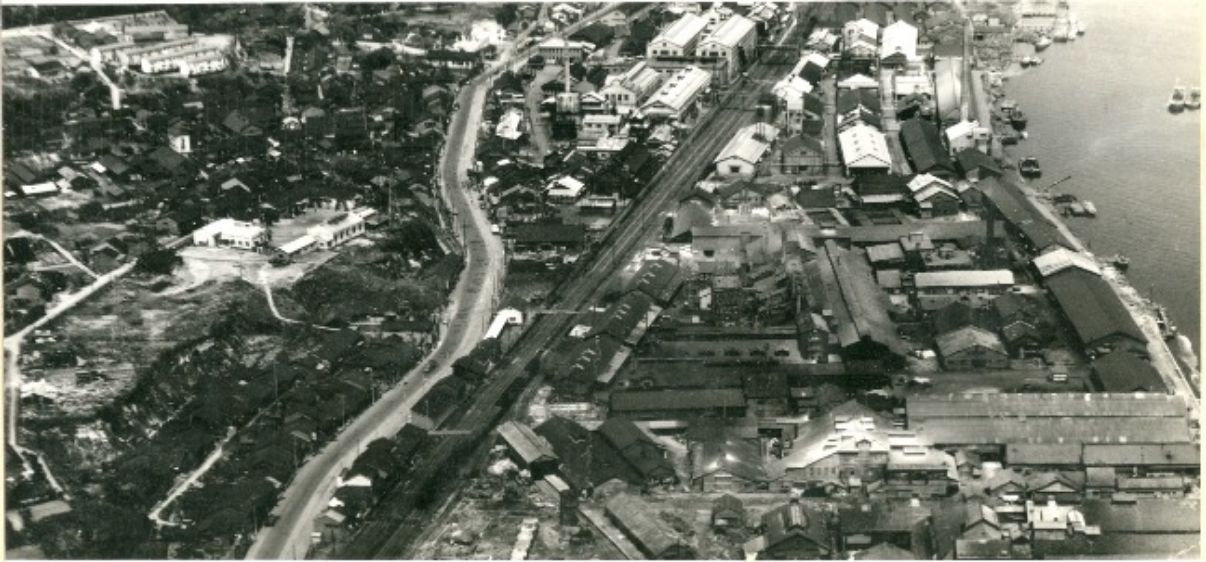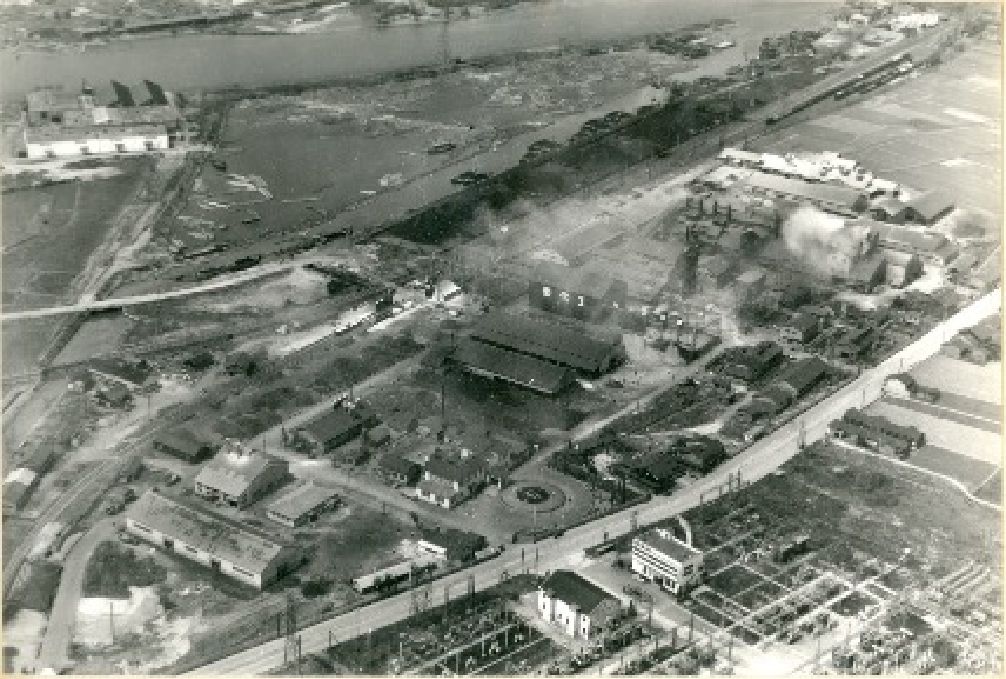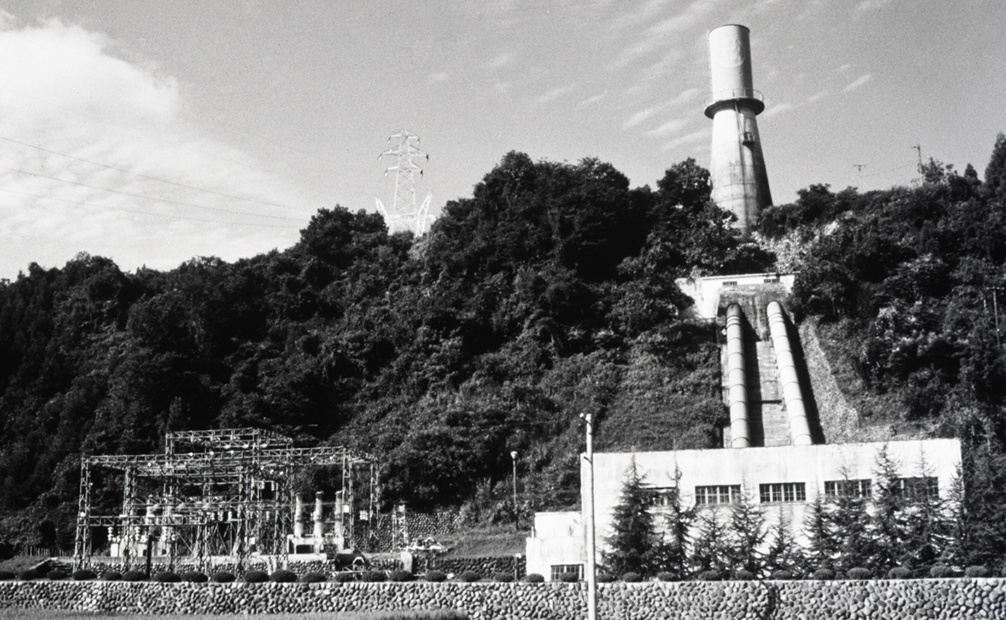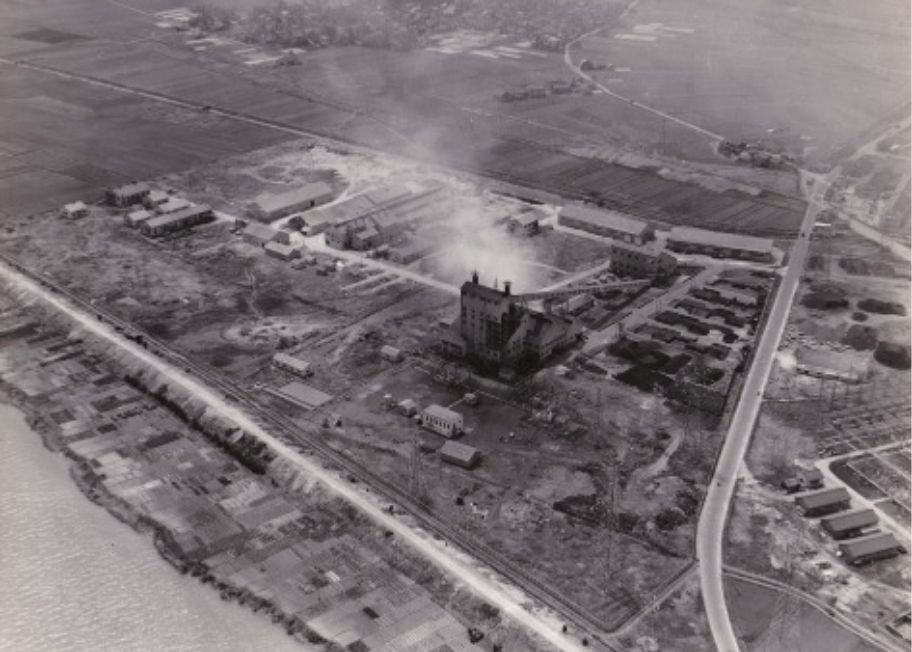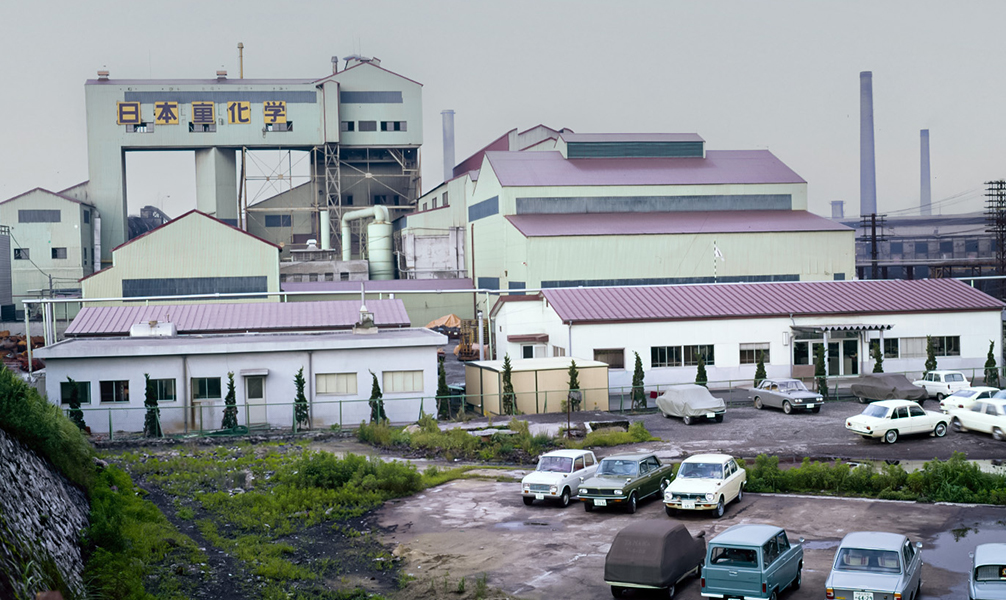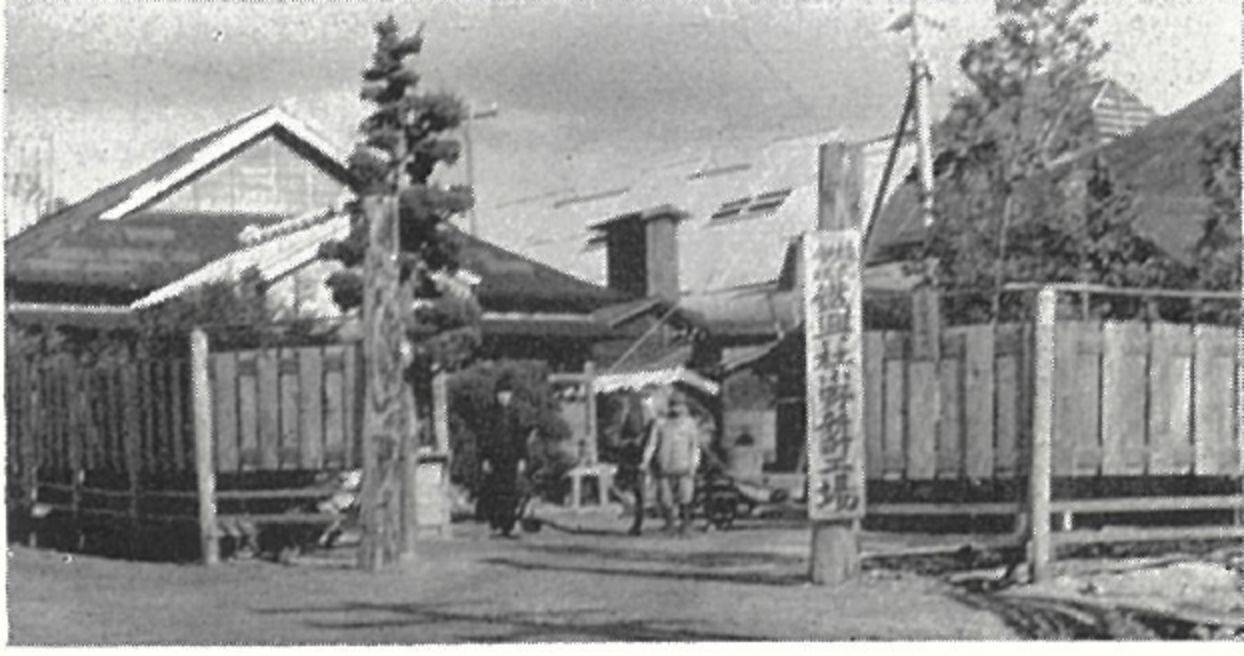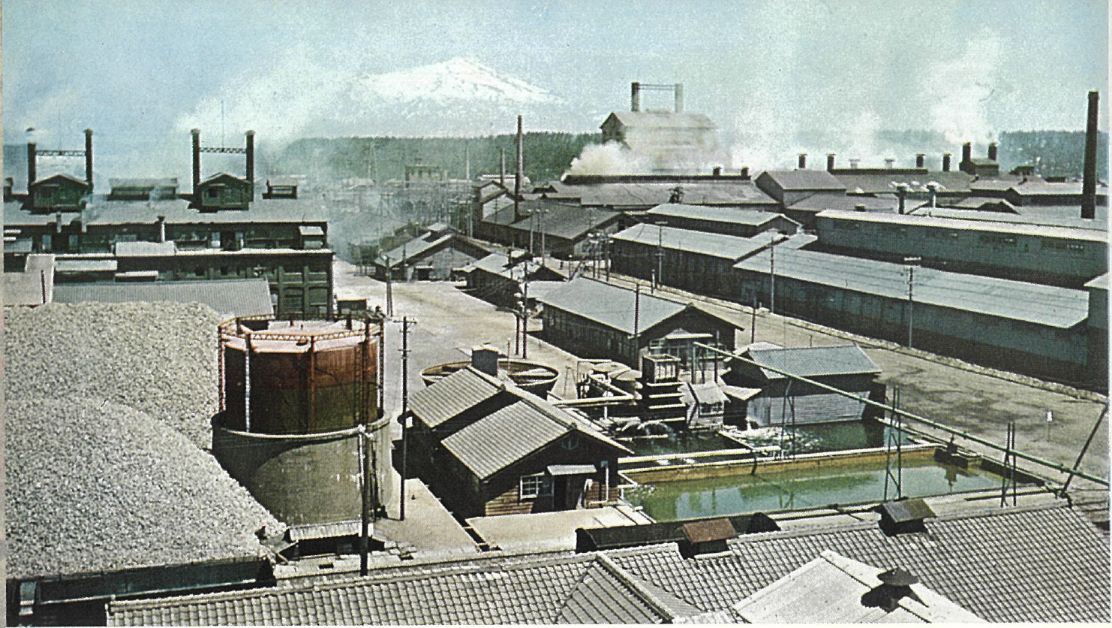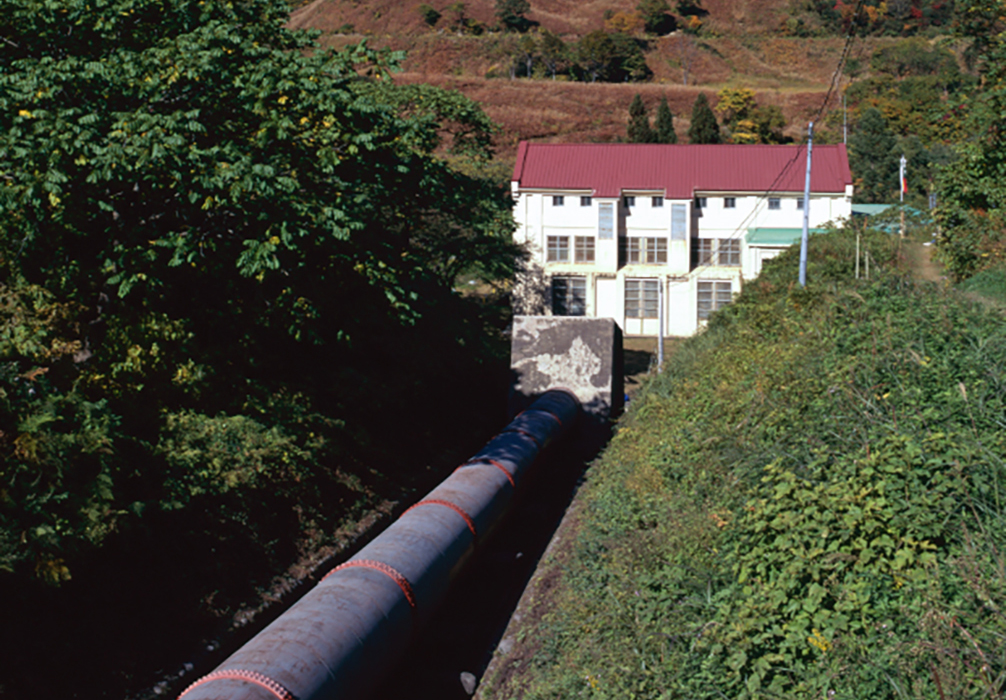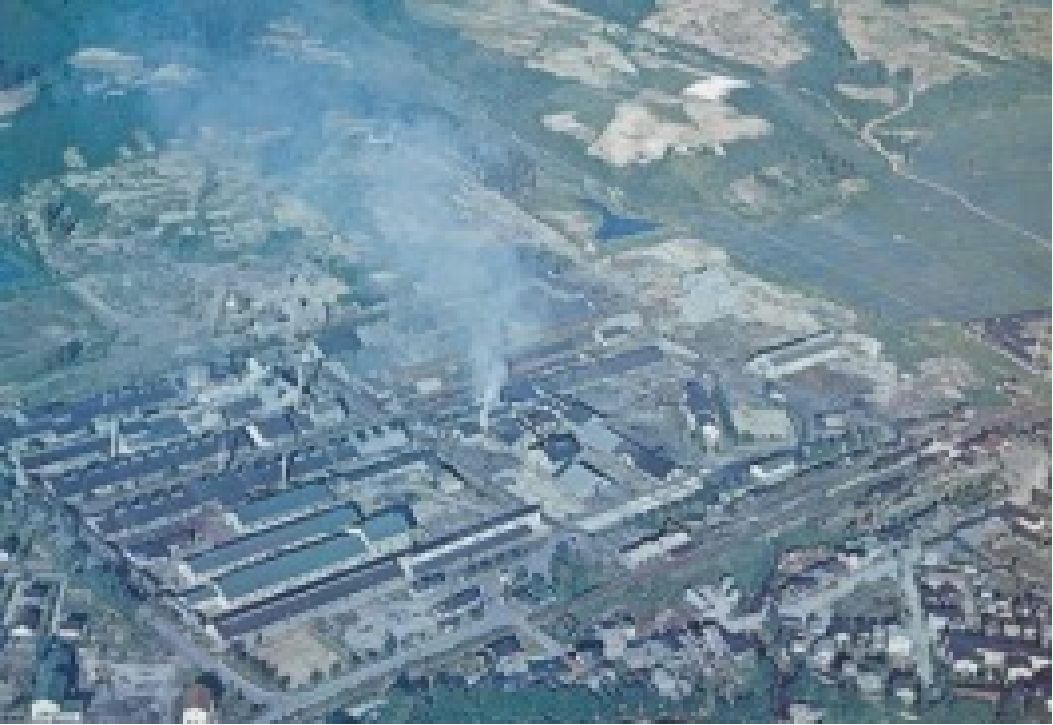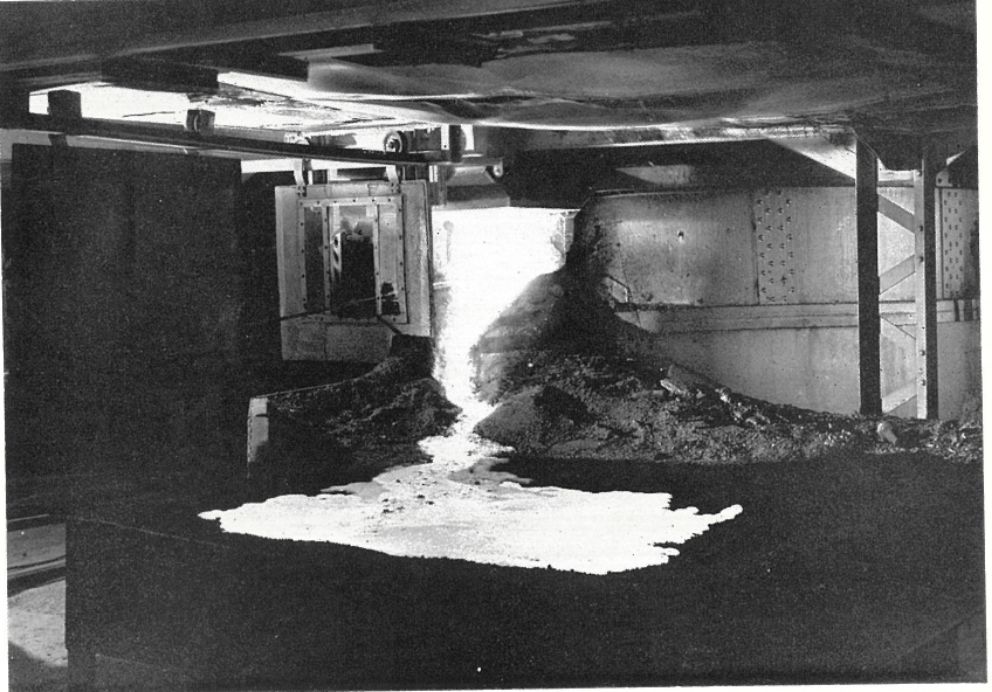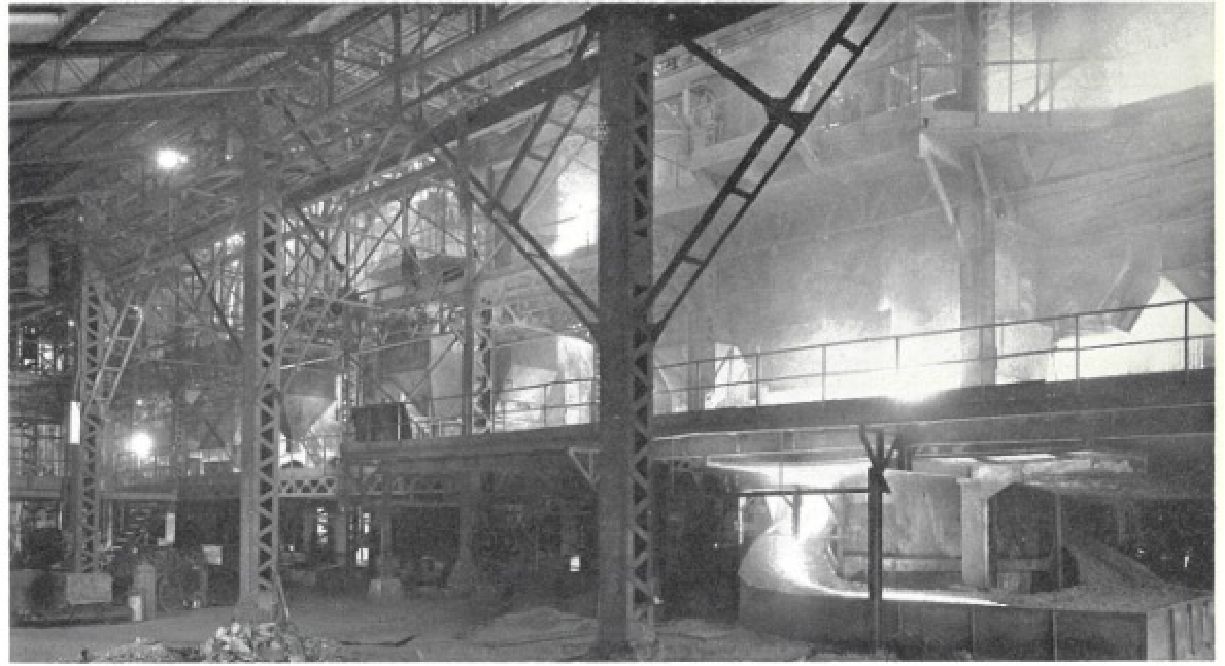Azuma Kako
Co., Ltd.Now Takaoka PlantTekkosha
Co., Ltd.Now Sakata FactoryToshiba Denko
Co., Ltd.Now Oguni FactoyTohoku Shinko Kagaku
Co., Ltd.Now Minami Iwate Office,
Date Office
1927
Established as Denki Kinyu Co., Ltd.
1929
The company name was changed to Nihon Denko Co., Ltd.
1945
Nomachi Factory was completed, and started manufacturing ferroalloys.

Nomachi Plant around 1960
1951
Hokkai Denka Kogyo Co., Ltd. was renamed Azuma Kako Co., Ltd.
1961
Started manufacturing cast steel products.
1962
Completed Hanamaki Factory in Hanamaki City, Iwate Prefecture, and began production of Azumin, a humic acid manganese fertilizer.
* In 2003, the fertilizer business, including Hanamaki Factory, was transferred to Denki Kagaku Kogyo Co., Ltd. (now Denka Company Limited).
1966
Constructed Matsukawa Geothermal Power Plant as Japan’s first geothermal power plant in Matsuo Village (now Hachimantai City), Iwate Prefecture.
* Transferred the Matsukawa and Kakkonda geothermal businesses and the hydroelectric power generation business in Tohoku to Tohoku Suiryoku Chinetsu Co., Ltd. (now Tohoku Sustainable & Renewable Energy Co. Inc.).
1966
The ferroalloy division was separated and became independent, establishing Toshiba Ferroalloy Co., Ltd.
1967
The ferroalloy division was separated and became independent, establishing Ferroalloy Kogyo Co., Ltd.
1968
Nihon Ferroalloy Co., Ltd.Now Sakata Factory, Oguni Factoy
Ferroalloy Kogyo Co., Ltd. and Toshiba Ferroalloy Co., Ltd. merged into Nihon Ferroalloy Co., Ltd.
1969
Japan Metals & Chemicals Co., Ltd.
Azuma Kako Co., Ltd. and Nihon Ferroalloy Co., Ltd.
merged into Japan Metals & Chemicals Co., Ltd.
1970
The company name was changed to Tohoku Metals & Chemicals Co., Ltd.
Formed capital and technical alliances with Japan Metals & Chemicals Co., Ltd.
1975
Japan Metals & Chemicals Co., Ltd.
Absorbed Tohoku Metals & Chemicals Co., Ltd.













